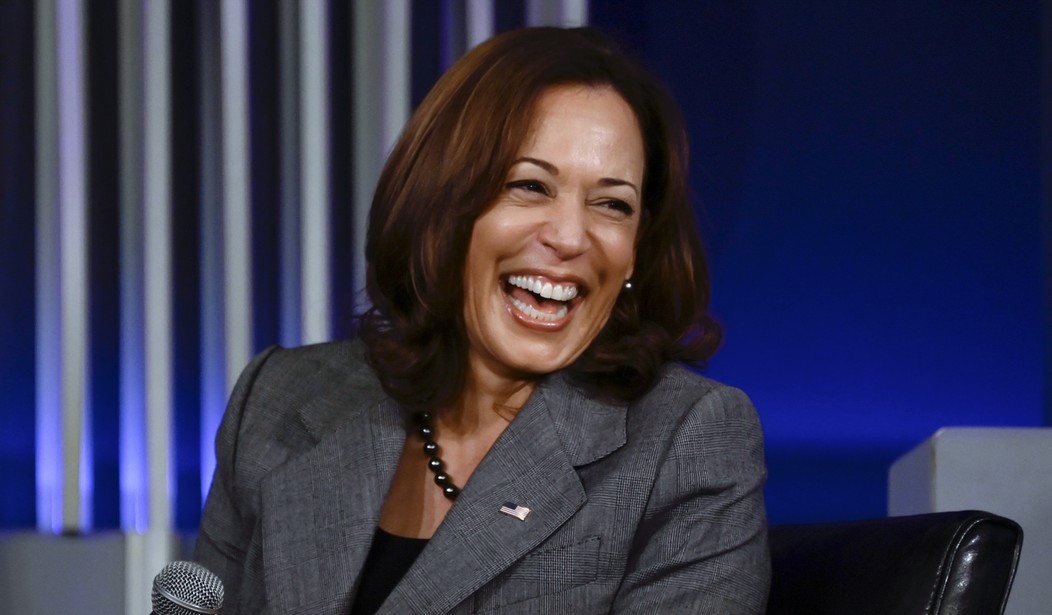The transformation of Kamala Harris from a cackling, incoherent, incompetent vice president to a "once in a generation" political talent (as noted by Financial Times columnist Edward Luce) was the most jaw-dropping metamorphosis I've seen in 50 years of following politics.
It was beyond surreal. Wasn't this Junior Lightbringer the same woman who embarrassed herself and her country on so many occasions?
She was “A former prosecutor running against a convicted felon, a defender of abortion rights running against the man who helped overturn Roe v. Wade, a next-generation Democrat running against a 78-year-old Republican," wrote author Charlotte Alter in Time Magazine.
This was not the same politician who crashed and burned so badly in 2020 that she was forced to drop out of the race before it even started. She had learned her lesson, right?
"During her first presidential campaign, Harris struggled to articulate a larger thesis for her candidacy and largely failed to support her thin premises with a coherent policy program; she adopted and shed positions seemingly at random; she struggled when speaking to the media," writes The New Republic's Alex Shepard.
All of that may be true. But the national campaign she's running now hasn't benefitted from that 2020 experience. Would she have done equally well if she had been forced to run in primaries? Her problem is that, as Sheperd points out, she's running the "exact same campaign" that she ran in 2020.
She is overcautious and reluctant to stake out positions; her priorities and approach to policy remain murky; her messaging is often overbroad. As the campaign enters its final stretch, Harris’s first, failed presidential run is increasingly instructive: She is, in many ways, running the exact same campaign now that she did five years ago and hoping for a different result.
Recall that Harris attacked Joe Biden in that first debate in 2019 for his opposition to forced busing and his work with pals like James Eastland of Mississippi and Herman Talmadge of Georgia in the Senate. But after Harris congratulated herself for gaining national attention for her takedown of Biden during the debate, the obvious follow-up questions arose. Where exactly did Harris stand on busing? After a few days, she finally answered that she, too, opposed forced busing, but that it was a good "tool" that school districts could use.
This strange cycle, in which Harris would briefly garner attention for doing something bold or unique, only to then vitiate the power of her own position by seeming reluctant to actually commit to it, would mar her campaign repeatedly: Harris would stake out a policy position, face some gentle criticism or scrutiny, and then “clarify” her stance into something mushier, often by materially changing it.
Related: The 2024 Presidential Election Really Isn't That Close
On any number of issues, Harris has done the same thing in 2024. For example, she supported electric vehicle mandates in 2019 only to announce this year that she opposed them. She then switched again, claiming, “I don’t support an electric vehicle mandate, but I just might sign one into law.”
Thanks to a media desperate not to give any traction to Donald Trump, astonishingly cynical remarks like this one go uncommented on. They are ignored, and it's left to conservative media outlets to point out the obvious: Kamala Harris doesn't really believe in anything.
But what she has articulated amounts to a grab bag of ideas on par with what she offered in the last Democratic primary: a mix of progressive and neoliberal policies (with lots of tax credits and populist bromides) that suggests no real core ideas about domestic policy. Five years ago, Harris tried to dodge the question of what the Democratic Party should be and how it should govern; today, it’s still not clear she really has an answer.
How can she get away with it? The media can't bring themselves to point out that Harris stands for little or nothing and her party has no core ideology. She's competitive because many voters aren't interested in what Harris stands for or what her party represents.
As long as she keeps shoveling federal money their way, many people will be content.










